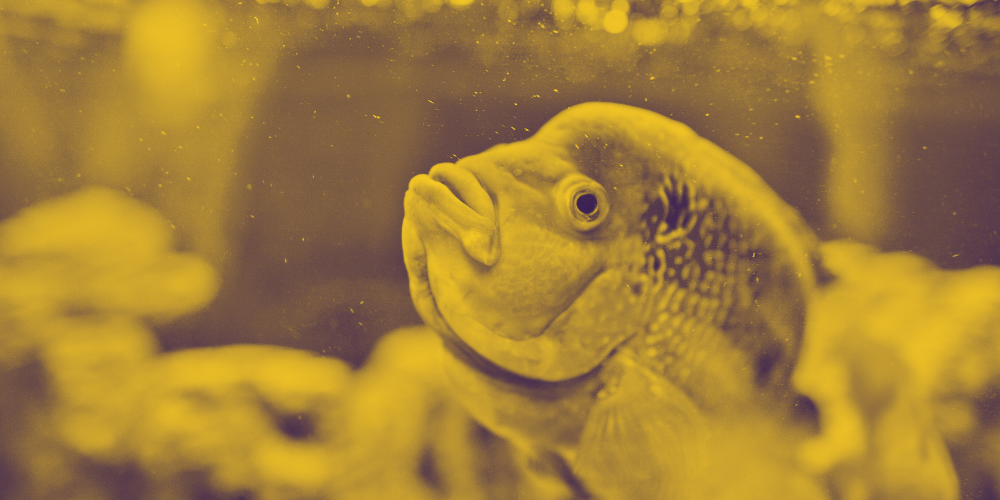Pain is a complex phenomenon that involves not only physical sensations, but also emotional and cognitive aspects. Pain, in some situations, causes suffering, and some emotions that trigger suffering in different ways can be: anxiety, stress and fear.
When we talk about animals, it is more difficult to understand the emotions of those with which we are not so familiar, such as fish, for example. That’s why we often treat their emotions with indifference. But did you know that fish feel pain? And we’re going to tell you how studies have come to this conclusion.
Evidence of the ability of fish to feel pain
Some scientific studies have revealed that fish react to pain stimuli, although they express it differently from us.
One such experiment, for example, involved injecting fish with acetic acid. The reaction of these animals was to seek relief by going to the bottom of the tank to rub the area where the poisonous liquid had been applied.
Observations of altered behavior after painful stimuli reinforce this theory. In one study, fish stopped searching for food after receiving noxious stimuli that caused pain during the search. This evidence shows us that fish feel pain just like other animals, but due to ignorance, lack of coexistence and also because of their distinct morphology, we have been conditioned to believe otherwise.
Other scientific studies also indicate that fish are susceptible to other forms of suffering, such as stress, anxiety and fear. Some species of fish are even used as experimental models in anxiety research with anxiolytics, which demonstrates their ability to experience negative emotional states.
Pain is a complex phenomenon that involves not only physical sensations, but also emotional and cognitive aspects. Pain, in some situations, causes suffering, and some emotions that trigger suffering in different ways can be: anxiety, stress and fear.
When we talk about animals, it is more difficult to understand the emotions of those with which we are not so familiar, such as fish, for example. That’s why we often treat their emotions with indifference. But did you know that fish feel pain? And we’re going to tell you how studies have come to this conclusion.
Suffering in tons
Fish are among the animals most used by humans, whether for consumption, scientific research, recreation or as pets. Around 1.5 trillion fish are caught in the wild and up to 167 billion are farmed for human consumption each year worldwide. This figure is around 25 times higher than all land animals slaughtered combined, which amounts to approximately 73 billion.
It is essential to recognize the suffering of these animals and the importance of improving their living conditions in captivity. This includes adapting the environment to offer stimuli that cause positive interactions, by introducing substrates, plants and other elements. Environmental enrichment helps to reduce stress and improve the quality of life for these animals. In addition, it is important to ensure that the density, water quality and diet of these animals are adequate.
How to become aware of this reality
Raising awareness about the suffering of fish is fundamental to promoting significant changes in their protection and well-being.
That’s why we invite you to read the Declaration of Sentience in Fish, a document drawn up by Alianima that recognizes the ability of fish to feel pain and other negative emotional states, with the backing of professionals in the field and bibliographical references for you to delve deeper into the subject.
Pain and suffering in fish are complex and important issues. Scientific evidence indicates that fish have the ability to feel pain and experience other negative emotional states. It is essential to consider the quality of life of these animals in captivity and in the fishing industry.



